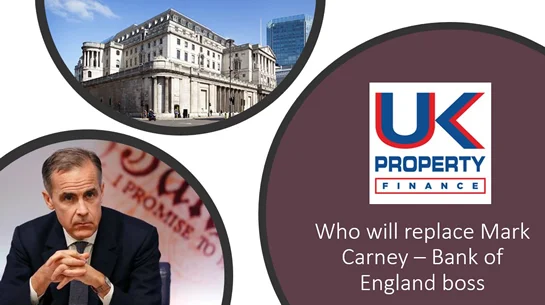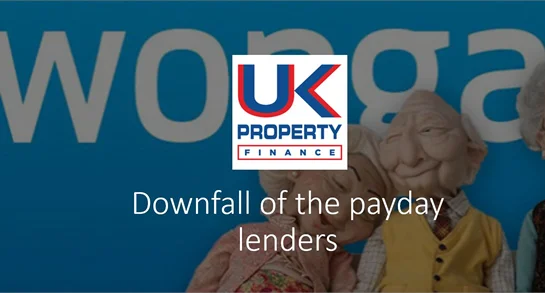Trump’s America: Financial Failure or Flourishing?
President Donald Trump is no stranger to claiming credit for just about anything that pops into his head. Two examples of this are the strength of the stock market and the US economy in general, both of which are doing pretty well.
As far as he’s concerned, the country’s entire economy was on the brink of disaster when he (unexpectedly) won the post of POTUS. He’d make no secret of his disdain for former President Barack Obama, suggesting that his own appointment was the best thing to happen to the US economy in recent history.
Not to mention, it is necessary to avoid economic ruin.
“When I took over this economy, this economy was ready to crash,” he said in an interview last October.
“We were at 1% GDP. Now we’re at 4.2%. It was ready to crash. It was the worst. If you look at the Depression—from the Great Depression—it was the worst recovery in the history of our country.”
Unsurprisingly, his remarks don’t paint a particularly accurate picture. On one hand, he’s right about achieving a 4.2% domestic product growth rate for one quarter in early 2018. Nevertheless, the quarter he was actually referring to saw a somewhat lower rate of growth at 2.6%. And Obama didn’t exit his presidency with a GDP rate of 1%; it was 1.6% for the year as a whole and 1.8% for his final quarter.
As usual, somewhat inflated and deflated numbers support his argument.
Nevertheless, he continued (in an entirely different interview) to suggest that his efforts are driving the United States into a more prosperous and powerful financial position than ever before.
“We’ve probably had the greatest first two years of any president in our history in terms of what we’ve accomplished with employment, with GDP, with everything,” he stated with confidence earlier this year.
“Instead of being up almost 50% with the stock market, you would have been down 50%.”
impressive figures, but massively overinflated once again. For those who care to look at the actual numbers, the stock market is actually up approximately 23% since Trump’s appointment—nowhere near 50%.
Still, you can’t deny that a 23% increase is anything but positive progress. Back in 2016, Trump made a pretty clear promise to his would-be voters.
“We’re going to make America wealthy again,” he stated.
“You have to be wealthy in order to be great.”
But what he may have failed to point out is the way in which his subsequent policies would focus more on significant gains for the already-wealthy. The Trump tax cut was introduced as promised, which left some of the country’s richest individuals and most prosperous businesses even better off.
In the meantime, America’s middle class has been dealt a hammer blow.
Job growth has slowed significantly, and wages remain stagnant across much of the country. Farmers are suffering enormously as a result of Trump’s escalating trade wars; mass closures are wiping out coal mines; and strikes among educators are becoming more common.
If all this wasn’t enough, healthcare costs and prescription drug prices are skyrocketing, house prices are on the rise, and America’s student debt crisis is as healthy as ever.
On the whole, it’s estimated that close to 85% of all the benefits of the tax cuts introduced by Trump will ultimately benefit the nation’s richest 1%. So while the economy of Trump’s America may be flourishing in some ways, the benefits aren’t being felt by those who matter most—the average American household.
Who Will Replace Mark Carney as Bank of England Boss?
There’s a pretty prominent position that’s about to open up with the UK government, calling for a fair amount of financial acumen and experience. The official recruitment process to find the next Governor of the Bank of England has begun, with Mark Carney set to stand down after six years of service at the end of January 2020.
For the first time in history, the British government has enlisted the services of a third-party recruitment company, Sapphire Partners, to help pinpoint the perfect candidate for the job. Despite the prominence of the position, the vacancy has been advertised publicly with a complete job description, along with a healthy salary of £480,000.
“The successful candidate must demonstrate that she or he can successfully lead, influence, and manage a complex and powerful financial institution, inspiring confidence and credibility within the bank, throughout financial markets, in the wider public arena, and on the international stage. She or he will need a broad range of capabilities ranging from macroeconomics to understanding developments in and the structure of financial markets to macro-prudential and micro-prudential supervision.” – An extract from the official job description
Of course, rank outsiders with a background in banking aren’t realistically in the running for the post. Instead, there’s a strong chance the decision is being made at this moment behind closed doors by way of an elite selection committee approaching qualified candidates directly.
Nevertheless, it had previously been suggested that the looming menace of Brexit could deter many candidates from applying for the role. Given the immediacy of the post following Britain’s possible (or otherwise) exit from the EU, the new Governor of the Bank of England could have their work cut out from day one.
The most likely candidates
In terms of who is most likely to be appointed for the role, the most prominent internal candidates right now are Chief Economist Andy H. and Bank Deputy Governor Ben Broadbent. Nemat Shafik also has a strong chance of taking over as the new governor, as does former Deputy Governor Andrew Bailey.
But what’s interesting in this instance is how the government is proactively using head-hunters to locate potential external candidates for the first time. Not only this, but it’s no secret that the chancellor is under immense pressure to appoint more female candidates to higher-level positions within the Bank of England.
The appointment of Sapphire Partners represents a clear reflection of the government’s growing advocacy of high-level female roles. The specialist recruitment agency describes itself as “advocate for women in business” and is operated by a board of five female partners.
Gender diversity within the British Government has been a growing cause of controversy as of late, with the Monetary Policy Committee (MPC) having been criticised for failing to appoint sufficient female candidates. Hence, it’s widely predicted that the government will give more consideration to qualified female candidates for the position of Bank of England Governor as of January next year.
The same also applies to international candidates; the government in general is being urged to consider candidates beyond the borders of Britain.
As far as the Chancellor is concerned, whoever takes the torch from Mark Carney will have some rather large shoes to fill. The current governor of the Bank of England has “helped steer the UK economy through a challenging period,” according to Mr. Hammond.
“Under Mark’s leadership, the Bank of England has been at the forefront of reforms to make our financial system safer and more accountable,” the chancellor continued.
Along with a basic salary of £480,000, official records show that Mr. Carney actually took home a total annual salary last year of more than £880,000.
The Downfall of the Payday Lenders
At the risk of causing controversy, the downfall of Britain’s most prominent payday lenders didn’t come as the biggest shock. Considered by critics to be the highwaymen of the 21st century, payday lenders in general didn’t have the most polished of reputations to begin with.
Nevertheless, it took the spectacular collapse of Wonga, Britain’s biggest payday lender, to kick the deterioration into overdrive. When Wonga collapsed in the wake of a wave of compensation claims, it still had more than 200,000 customers with no idea what to do next.
A figure that demonstrates just how severe Wonga’s compensation woes were and still are
But given the fact that Wonga was once touted for a flotation that would have valued the company in excess of $1 billion, what exactly went wrong? Or more importantly, what went wrong for the entire payday lending industry in the United Kingdom?
Far from a single point of contention, there were a handful of prevalent issues plaguing both the industry and its customers from day one. some of which critics argue should never have been tolerated in the first place.
Extortionate borrowing costs
For example, Wonga wasn’t even close to being the worst offender on the market by way of borrowing costs. Nevertheless, the company still displayed a representative interest rate of 5,853% APR on its website. Additional charges included £10 loan extension fees, £5.50 transmission fees, and standard £20 late payment fees. All of which added up to millions of customers borrowing small amounts of money and ending up out of their depths in debt.
To put things into some kind of context, secured loans can typically be arranged at a much lower interest rate of around 3.5%. Penalties associated with repayment issues can also be considerably less severe with secured loans.
Payday lenders routinely argued that just as long as the borrower fulfilled their repayment obligations as agreed, they’d be looking at competitive and affordable overall borrowing costs. As far as the critics were concerned, there was never any justification for these kinds of interest rates and borrowing costs.
Oversimplified application processes
It’s also argued that payday lenders in general make it far too easy for pretty much anyone to access cash they really couldn’t afford to borrow. The typical payday loan application process demands very little personal information and involves few formal checks of financial status. As a result, millions were able to take on debts they neither needed nor could afford, quickly falling into an inescapable debt spiral.
At which point, payday lenders were accused of doing little to help. In fact, many companies’ profits were generated primarily by the additional borrowing costs and penalties levied on those who fell into difficulties.
Targeting vulnerable customers
If all this wasn’t enough, major and minor payday lenders alike have been routinely accused of deliberately targeting vulnerable demographics. From the unemployed to the elderly to everyday households struggling to make ends meet, payday loans have been marketed directly at those most likely to struggle with the subsequent debt. Official advertising watchdogs have confirmed this is indeed the case.
So rather than simply taking advantage of individuals in vulnerable positions, many payday lenders were deemed to have deliberately targeted them in the first place. The result of which was the kinds of extensive compensation claims that led to the downfall of Wonga. And if a once-enormous financial powerhouse like Wonga was unable to remain afloat, what chance did the rest of the industry have?
A way out?
Secured consolidation loans have proved useful for many who’ve accidentally fallen into a debt spiral. It’s a facility that works by combining all debt-related outgoings into a single loan at a far more affordable rate of interest. Consolidation enables struggling borrowers to take back control and make enormous savings.
Whenever moving unsecured debt to a secured basis, the consequences of not repaying the new loan should be carefully considered before going ahead.
In a nutshell…
The downfall of Wonga served as a stark reminder of the risks associated with high-interest borrowing out of pure desperation. The lesson learned for the borrower is that if you’re struggling to make ends meet as they are, the last thing you want is more debt to deal with.
How Are Estate Agents Fairing in the Brexit Limbo?
Britain’s Brexit blues show no signs of abating in the near future, at least. In the meantime, businesses and entire industries across the UK are suffering. One example of this is the estate agency sector, which is in the midst of one of the most turbulent periods ever encountered.
If we had any idea what was going to happen even six months from now, we’d be able to plan ahead. As it stands, nobody knows if, when, or how the UK will ever leave the EU. And it’s precisely this uncertainty that’s making it difficult for industries like these to get by.
How will Brexit affect estate agencies?
Whatever takes place (or doesn’t) on or before October 31 will have a significant impact on the UK property market. If the outcome is amicable, we could be looking at healthy and ongoing property price hikes in key markets nationwide. If things take a turn for the worst, it could cripple the entire UK economy.
As a result, it’s hardly surprising that would-be movers and investors are, for the most part at least, sitting tight and waiting to see what happens. Enormous decisions are being delayed indefinitely, which is having a knock-on effect on the estate agency sector.
Nobody wants to base their decisions on pure guesswork alone, which means nobody’s buying. And when nobody’s buying, estate agents struggle to stay afloat. The longer the uncertainty drags on, the more challenging it’s going to become for estate agents to survive.
Estate agents and Brexit uncertainty
There’s a growing trend among UK estate agents right now to avoid filling the vacancies left by departing agents and representatives. At the time of the EU referendum, it was estimated that the UK estate agency sector was already overpopulated by approximately 20%. That being said, 20% more agents were needed to cover the requirements of the market at the time.
Today, there’s an even bigger deficit in demand due to the lingering uncertainty of Brexit. To such an extent that some have gone so far as to predict that as many as 2,500 estate agency branches will close their doors permanently over the next 18 months,
Brexit’s eventual outcome could have a significant impact on this tally in either direction, but it still makes for pretty grim reading.
Focusing on specific agencies, a recent report published over at Motley Fool suggested that property powerhouse Purple bricks could completely run out of money if it doesn’t carefully reconsider its international expansion plans. Two weeks after being bought out of administration, House Network ceased trading entirely.
Despite having some of the best real estate agents in Britain, Countrywide posted total losses of £218 million last year, suggesting the company plans to close a total of 267 branches.
Across the board, economists believe that the latest wave of low-cost, often web-based real estate agencies will have no choice but to significantly increase their fees to get by. The problem is that this will somewhat augment the appeal of working with a dynamic digital agency in the first place, rather than taking your business to a traditional real estate agency.
In search of certainty
While the bewildering Brexit battle continues, issues like these are only set to intensify for many major sectors across the UK. Even if the UK’s departure from the EU turned out to be disastrous, estate agents would at least be in a position where they could make decisive choices and plan for the future.
The way things stand right now, nobody even knows what they’re planning for.
What Will Homes Look Like in The Future?
Flying cars, robot butlers, and Star Trek-style transportation systems: We’ve seen some pretty wacky projections for homes of the future over the years. Realistically, the house of the future envisaged by the sci-fi fanatic was never going to happen during our lifetime. But this doesn’t mean the homes of the future we’ll be seeing soon enough won’t be impressive in their own way.
You simply have to gauge your expectations a little more realistically!
According to the pages of a new report entitled “Futurology: The New Home in 2050,” the house of the future is all about smart technology for homes. The kinds of smart homes where intelligent hardware and software make automatic decisions on things like security, heating, shopping, and so on
The smart technology homes of the future
As the world deals with a rapidly expanding and ageing population, architects expect to see growing demand for multi-generational properties to accommodate various generations in one household. This will require greater flexibility and adaptability than ever before in order to accommodate the changing needs of the property’s occupants.
Builders and architects are also already planning a future where homes capitalise on vertical space, occupying as little horizontal ground space as possible. This will enable areas of high demand to support much larger populations with the creation of compact homes with multiple stories to accommodate those within.
Technologically, we’ll undoubtedly see a continuation of the smart home trend already making its mark. Industry watchers expect to see more homes than ever before collecting and storing their own energy with renewable methods while more effectively utilising and recycling their own water supplies.
Smarter technology in general will significantly reduce the average household’s energy consumption requirements and carbon footprint. In fact, sustainability in general is expected to represent a growing area of importance for builders and developers over the years to come. Homes able to reduce their impact on the environment will potentially qualify for attractive incentives from local and national government offices.
It may also be possible for the home of the future to play a more direct role in overseeing the health and wellbeing of its occupants. Particularly where elderly residents are concerned, smart technology could be used to look for warning signs of ill-health and report directly to the relevant medical professionals. If a person were to collapse, the house itself could immediately call for an ambulance.
Smart refrigerators and storage devices are already warning households when stocks are running low and creating virtual shopping lists. Sooner or later, households will come to rely on completely automated systems that order and organise the delivery of everything they need before ever even realising they need it.
It’s also entirely likely that working from home will become an even more prominent fixture for the average household in the future. It’s already possible to communicate and collaborate with teams from any location worldwide via a basic computer and webcam. The more sophisticated computer technology and IT security become, the broader the scope for getting the job done from home.
Last but not least, the complete automation of home comfort, convenience, and entertainment systems is already happening. From window dressings to fireplaces to music systems to lighting to heating and so on, personal preferences can be met via voice assistants, facial recognition technology, and simple automated timers. Once again, the idea is that the home of the future will know what it is you want before you even realise it yourself!
Exactly how all the above affects the future of house prices remains to be seen, but it nonetheless paints a pretty impressive picture of what’s to come.
Another Retailer at Risk? Is This a Sign of Things to Come?
UK retail news has been blighted as of late with a near-infinite string of permanent closures. It’s no secret that there are more retail stores closing their doors in the UK than ever before, painting a rather bleak picture for the UK retail sector as a whole.
The most recent casualty to join the apparent downfall is Bon Marché, which is now under threat after more than 35 years on the UK High Street. Currently operating 312 stores across the country, the company is expected to post significant losses of more than £5 million in 2019. Its owner, billionaire Philip Day, has given a reason to suggest stores and jobs in worrying numbers could be under threat.
Reading into the headlines, you begin to wonder: how many retail businesses are there in the UK that can survive long-term? Considering what percentage of retail sales are online in the UK, you can’t help but feel a sense of pessimism for the High Street as we’ve traditionally known it. Right now, an incredible £4 out of every £100 spent in the UK is scooped up by Amazon alone.
This represents just one of many thousands of online businesses making life difficult for the traditional British retailer.
How much is the UK retail industry worth?
With figures like these, you’d expect the total value of the UK retail industry to have plummeted to next to nothing. In reality, this simply isn’t the case. In total, the UK retail industry is valued at in excess of £358 billion annually. Despite the ongoing challenge posed by web retailers, online sales still account for just 17% of overall annual retail sales.
That’s according to the Office for National Statistics, suggesting there’s still plenty of room in our lives for the traditional retailer.
Somewhat less surprisingly, the 21st century retail landscape of the United Kingdom is led by the four biggest supermarkets. Tesco, Sainsbury’s, Asda, and Morrisons account for the lion’s share of the revenues generated on the High Street, attributed largely to their convenience, ease of access and impossibly low prices.
Nevertheless, the web retail industry is accelerating at its fastest-ever pace, growing at a rate of more than 20% annually. As far as economists are concerned, this is set to continue indefinitely and could further increase pressure on the high street.
Avoiding overheads
By eliminating any number of overheads from the equation, online retailers are able to sell products at significantly lower prices than their high-street cousins. From physical premises to vast workforces to general upkeep costs and so on, the reduction of operational expenditures results in huge savings being passed on to the customer.
At the same time, retail property leases, taxation, and general operational costs are increasing for traditional retailers. all compounded by the convenience of 24/7 accessibility, free shipping, and the most enormous range of products now available online at the touch of a button.
But does all of this spell the complete demise of the High Street? Not exactly. It’s simply a case of shifting focus to a different aspect of customer expectations.
Experiences with products
When polled, customers who continue to favour traditional High Street retailers spoke of their preference for the ‘experience’ as a whole. Being able to walk into a welcoming and atmospheric store, speak to a knowledgeable representative, examine products first-hand, and generally make an experience of the whole thing
A sentiment shared by the CEO of Harrows stated that the key to long-term success on the UK high street lies in focusing on the benefits online retail cannot replicate. Challenging perhaps, but achievable by getting to know what exactly any given target audience responds positively to and providing it at the highest possible level.
Selling a Property Through Probate? How Much Tax Do I Have to Pay?
Concerned about how to pay inheritance tax before probate? In need of advice on how to value personal property for probate? Given the importance and sensitivity of such transactions, sourcing independent expert advice should be your first port of call.
What Is a Probate Property?
Dealing with the loss of a loved one is challenging enough without the added complications of handling complex probate and inheritance tax issues. In the simplest terms, a probate property is a property an individual takes ownership of that has been named in the final will and testament of a deceased individual.
Irrespective of whether you intend to sell the property, you may be liable for probate tax, aka inheritance tax, in the United Kingdom. The importance of an accurate probate valuation of property cannot be overstated, nor can securing expert representation help relieve some burden. From obtaining a grant of privilege to dealing with all administrative and taxation requirements, it’s important to have an experienced team behind you.
Do I have to pay inheritance tax?
In England and Wales, you will be liable for an inheritance tax payment if the total estate bequeathed to you has a combined value in excess of £325,000. This is the existing inheritance tax threshold—the limitation of the inheritance you can receive without having to pay tax.
If the total value of the estate exceeds £325,000, a full 40% is payable on the amount that goes beyond this threshold.
What Does Probate Have to Do with Inheritance Tax?
When an individual receives ownership of a property through a final will and testament, they must obtain a Grant of Representation to confirm their legal ownership of and rights to the estate. In order for this to happen, the entire estate must be valued and inheritance tax obligations calculated.
The process cannot be completed until the recipient of the estate is able to prove that they have paid the inheritance tax due in full or provide formal evidence that inheritance tax is not payable. By working with an experienced and reputable probate specialist, the entire process of evaluating the property and establishing inheritance tax liability can be accelerated and simplified significantly.
A typical example
In a working example, an individual is left a property in the final will and testament of a parent. The property has a probate valuation of £475,000, which is also the maximum value the property is likely to sell for in the current market. Assuming this is the total value of the deceased individual’s estate, this amounts to £150,000 above the current inheritance tax exemption threshold.
This would mean that 40% of the £150,000 would be payable to satisfy inheritance tax requirements, amounting to a total of £60,000.
However, there are countless variables that could affect the total tax liability in both directions. From charitable contributions to capital gains tax to the type of property and its intended use, it isn’t quite as simple as establishing basic inheritance tax obligations alone.
The importance of responsible representation
The representation you secure throughout the process could have an enormous impact on the costs incurred. Avoidance of taxation isn’t an option, but there are often avenues to explore to minimise the amount of tax you’re required to pay. all while simplifying a complex legal and legislative process during an incredibly difficult time of life.
At the earliest possible stage, therefore, secure the most capable and experienced representation available. Doing so could save you time, money, and a lot of unnecessary hassle along the way.
Have Banks Recovered from the Recession?
More than a decade has passed since the financial crisis that crippled the UK. In the meantime, banks and lenders across the country have been working tirelessly to regain their strength and positioning. Lloyds Bank recovery and Bank of Scotland debt recovery initiatives have been well publicised, but where exactly do we stand right now?
Have post-recession recovery efforts reached their objectives? Or are the scars of the recession still visible across the UK economy?
The UK’s recovery from recession
The truth is, the answer lies somewhere down the middle. In terms of recession recovery, the UK has experienced an impressive eight years of solid growth since the height of the crisis. In addition, employment levels have repeatedly hit record highs along the way.
Nevertheless, this doesn’t mean the UK’s recovery from the recession is complete. Some facts and figures still make for less than reassuring reading, despite evidence that things are at least heading in the right direction.
Wages
For example, average wages are no higher today (in inflation-adjusted terms) than they were 14 years ago. Promises have been made by the Bank of England to continue improving wages for UK workers, but annual increases of around 2.5% pale in comparison to the 4% annual average prior to the financial crisis. So while progress has been made, there’s still a long way to go.
Productivity
The stagnation of productivity in the UK has proved particularly problematic and stubborn over the past decade. In fact, productivity growth since 2008 has trudged along at its slowest pace in almost two centuries. Economists point the finger at low interest rates, poor management, and a lack of investment. problems that continue to hang over the British economy today.
Housing market
Steady growth in housing market activity has helped many banks and lenders repair at least some damage brought about by the recession. Once again, however, things are still performing at an exponentially lower level than prior to the crisis. For example, mortgage approval volumes are still down around 40% compared to a decade ago, with minimal inventory contributing to average property price increases of 17%.
Government debt
Extensive efforts have been made to bring government debt under control, which exploded wildly in the months and years following the crisis. A decade of frugality and budget cuts have made a dent, but there’s still a glaring gap between government spending and tax revenues.
EU withdrawal
Last but not least, nobody has any real clue as to the possible implications of the UK’s exit from the European Union. an issue that is currently affecting every aspect of the British economy. From house prices to interest rates to personal and business borrowing, people are more cautious about their financial decisions than they’ve been in some time. Some of which is playing into the hands of banks and major lenders, some prolonging the recovery process and prompting fears of another economic crisis.
For more information on the current state of the UK banking sector or to discuss our services in more detail, contact UK Property Finance for an obligation-free consultation.








